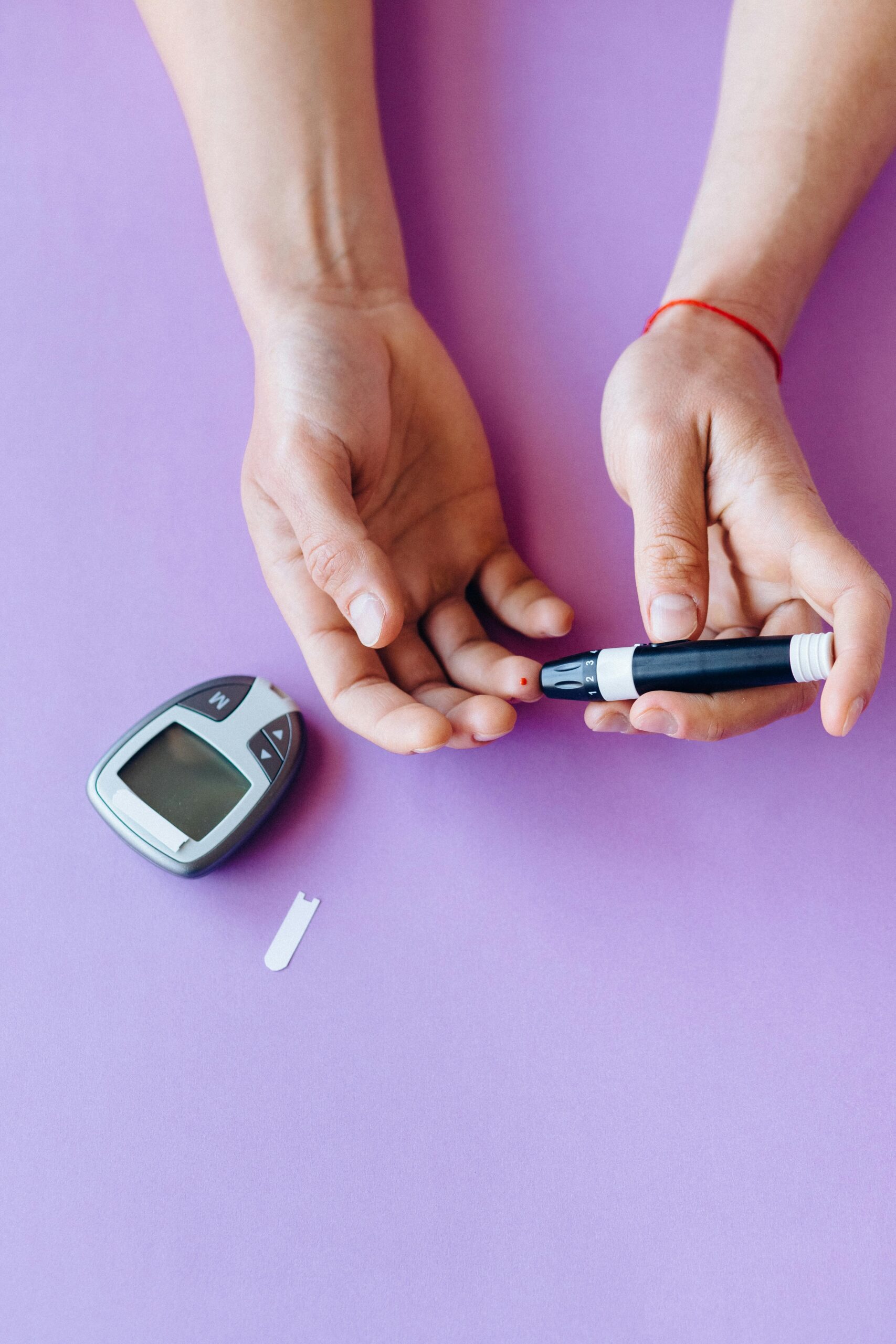Keeping up sound blood sugar levels is basic for in general well-being. Blood sugar direction is the body’s way of keeping glucose at ideal levels. If this prepare is disturbed, it can lead to different wellbeing issues like weariness, weight pick up, or indeed diabetes. While most individuals relate the Hidden Link Between Hormones and Blood Sugar Levels.
Hormones act as couriers, making a difference the body oversee endless capacities — counting how glucose is put away and used. Understanding the part of hormones in glucose digestion system can offer assistance avoid or superior oversee blood sugar-related issues. This article will investigate how hormonal wellbeing impacts blood sugar, what happens when things go off-base, and how you can take control actually and medically.
Segment 1: How Hormones Control Blood Sugar
Hormones are key players in blood sugar direction. A few of them work together to keep glucose levels steady, particularly after dinners, amid push, or whereas sleeping.
One of the most imperative hormones is affront, which makes a difference move glucose from the blood into the cells for vitality. Without it, glucose remains in the circulatory system, driving to tall blood sugar. This highlights how affront directs blood sugar and why it’s basic for sound metabolism.
Another major hormone is cortisol, regularly known as the push hormone. Amid periods of physical or passionate stretch, cortisol prompts the liver to discharge glucose, giving the body speedy vitality. Be that as it may, as well much cortisol over time can lead to affront resistance. This appears the interface between cortisol and blood sugar levels and the significance of overseeing stress.
The thyroid hormones and glucose digestion system are moreover closely associated. An underactive thyroid can moderate digestion system and influence how the body handles sugar. Then again, an overactive thyroid may increment glucose generation. Additionally, development hormone and affront resistance are connected — overabundance development hormone can diminish affront affectability, making it harder for cells to retain glucose.
Section 2: Hormonal Awkward nature That Disturb Blood Sugar Levels
Certain hormonal clutters can meddled with typical glucose control and raise the chance of unremitting conditions like sort 2 diabetes.
One such condition is PCOS and blood sugar control. Ladies with PCOS regularly involvement lifted androgens and affront resistance, making blood sugar harder to manage.
Another life arrange that impacts blood sugar is menopause. As estrogen levels decay, the body gets to be less responsive to affront. This clarifies the association between menopause and blood sugar changes, and why a few ladies pick up weight or create diabetes around this time.
The adrenal organs and blood sugar are too related. These organs create cortisol and adrenaline, which direct push reactions and glucose discharge. When adrenal work is irregular, it can result in visit glucose spikes or drops.
Section 3: Indications of Hormone-Related Blood Sugar Issues
When hormones aren’t working appropriately, the body regularly gives unpretentious signals. Numerous individuals don’t realize these signs point to basic hormonal lopsided characteristics influencing glucose levels.
Common side effects of blood sugar lopsidedness incorporate temperament swings, brain haze, and visit starvation or longings. These may come from fluctuating glucose levels due to hormone changes.
Sometimes the body produces as well much affront, causing blood sugar to drop rapidly. This is one of the hormonal causes of hypoglycemia, which can make you feel mixed up, powerless, or shaky.
Additionally, weight pick up — particularly around the stomach — can be a result of hormonal changes. For case, cortisol can lead to fat capacity, appearing the association between blood sugar and weight pick up and why hormone adjust is critical.
Section 4: Way of life Tips to Adjust Hormones and Stabilize Blood Sugar
Fortunately, you can take control of your hormonal and glucose wellbeing by making way of life alterations. These don’t fair back superior blood sugar — they too move forward by and large well-being.
A adjusted eat less plays a major part in eat less and hormone adjust. Center on entire nourishments, fiber-rich vegetables, and incline protein. Maintain a strategic distance from refined sugar and handled carbs, which can spike both glucose and hormones.
If you’re looking for ways to overseeing blood sugar normally, begin with little, reliable changes — like eating littler dinners all through the day, remaining hydrated, and dodging caffeine and liquor excess.
Physical movement moreover makes a difference. Work out and hormone direction go hand in hand, as standard development can boost affront affectability, lower push hormones, and back solid weight.
Section 5: Therapeutic Bolster and Hormonal Therapy
Sometimes, way of life changes aren’t sufficient — particularly if there’s a more profound hormonal issue at play. In these cases, therapeutic offer assistance can make a huge difference.
There are circumstances where hormonal treatment and blood sugar back are vital. For occurrence, ladies going through menopause may advantage from hormone substitution treatment to ease side effects and move forward affront sensitivity.
It’s basic to work with a pro like an endocrinologist for diabetes, who gets it how hormones associated with digestion system and can give custom fitted treatment plans.
They may prescribe hormone blood tests to assess affront, thyroid levels, estrogen, and cortisol. These tests can reveal lopsided characteristics and offer assistance direct treatment or medication.
Conclusion
Hormones are more than fair chemical flag-bearers — they are effective controllers of blood sugar and generally wellbeing. From affront and cortisol to estrogen and thyroid hormones, each plays a part in how your body forms and stores glucose. This complex association between hormones and blood sugar control implies that overlooking hormonal wellbeing can make overseeing blood sugar much harder. In any case, with mindfulness, proactive way of life changes, and proficient direction, it’s conceivable to reestablish adjust and feel your best.
Pay consideration to your body’s signals, oversee push, eat a feeding eat less, and look for restorative counsel when required. Understanding the covered up interface between hormones and blood sugar levels might be the key to opening way better wellbeing.
FAQs:
1. Can hormone imbalances cause high blood sugar?
Yes, hormone imbalances—especially involving cortisol, thyroid hormones, or insulin—can lead to elevated blood sugar levels. Chronic stress, for example, increases cortisol, which can raise glucose levels over time.
2. How does insulin work to control blood sugar?
Insulin is a hormone produced by the pancreas that helps cells absorb glucose from the bloodstream. When insulin doesn’t function properly (as in insulin resistance), blood sugar can remain dangerously high.
3. What hormones affect blood sugar levels the most?
Key hormones that regulate blood sugar include insulin, glucagon, cortisol, growth hormone, estrogen, progesterone, and thyroid hormones. Each of these has a unique role in glucose metabolism.
4. Can stress hormones affect my blood sugar?
Yes. Stress hormones like cortisol and adrenaline trigger the liver to release more glucose into the bloodstream, which can lead to temporary spikes in blood sugar.
5. Does menopause affect blood sugar levels?
Yes. During menopause, declining estrogen levels can reduce insulin sensitivity, making it harder to regulate blood sugar and increasing the risk of type 2 diabetes.
6. How are PCOS and blood sugar related?
Polycystic Ovary Syndrome (PCOS) is commonly linked to insulin resistance, which can elevate blood sugar and increase the risk of developing type 2 diabetes.
7. Can thyroid issues lead to blood sugar problems?
Yes. Both hypothyroidism and hyperthyroidism can disrupt carbohydrate metabolism, leading to fluctuations in blood sugar levels and insulin sensitivity.
8. What are the symptoms of hormone-related blood sugar imbalances?
Common symptoms include fatigue, mood swings, sugar cravings, weight gain, irritability, and difficulty concentrating. These may suggest both hormonal and blood sugar issues.
9. How can I balance my hormones to improve blood sugar control?
Focus on a balanced diet, regular exercise, stress reduction, quality sleep, and avoiding processed sugars. For some, medical intervention such as hormone therapy or medication may be needed.
10. When should I see a doctor about hormone-related blood sugar problems?
If you experience persistent symptoms like unexplained weight changes, irregular periods, constant fatigue, or frequent blood sugar spikes/drops, consult an endocrinologist for evaluation.





